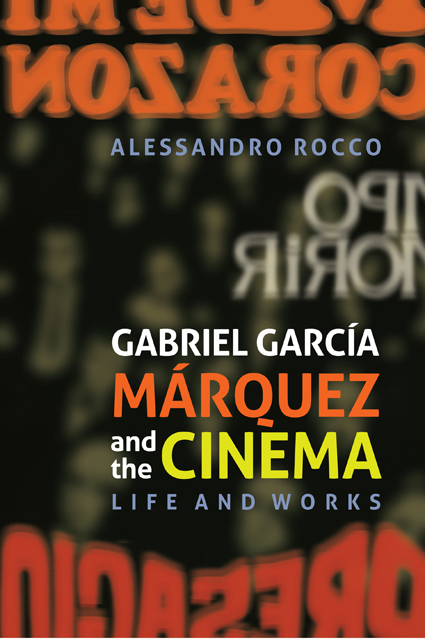Book contents
- Frontmatter
- Dedication
- Contents
- List of Illustrations
- Acknowledgements
- Preface
- 1 The Cinema in the Life of García Márquez
- 2 Tiempo de morir
- 3 Films from the 1970s: The Ghosts of Realism
- 4 Screenplay and Revolution: ¡Viva Sandino!
- 5 Magic Realism in the Cinema
- 6 Six Episodes for Cinema and Television: Amores difíciles
- 7 Con el amor no se juega
- 8 The Fantastic on Television: Me alquilo para soñar
- 9 History and Tragedy: Edipo Alcalde
- Afterword: Works by García Márquez Adapted for the Cinema
- Bibliography
- Index
9 - History and Tragedy: Edipo Alcalde
Published online by Cambridge University Press: 24 February 2023
- Frontmatter
- Dedication
- Contents
- List of Illustrations
- Acknowledgements
- Preface
- 1 The Cinema in the Life of García Márquez
- 2 Tiempo de morir
- 3 Films from the 1970s: The Ghosts of Realism
- 4 Screenplay and Revolution: ¡Viva Sandino!
- 5 Magic Realism in the Cinema
- 6 Six Episodes for Cinema and Television: Amores difíciles
- 7 Con el amor no se juega
- 8 The Fantastic on Television: Me alquilo para soñar
- 9 History and Tragedy: Edipo Alcalde
- Afterword: Works by García Márquez Adapted for the Cinema
- Bibliography
- Index
Summary
A Colombian friend, Gustavo Ibarra Merlano, sealed the literary destiny of García Márquez by ordering him to go and read the classics of Greek literature. As the author says:
I went off to my room, got into bed and began to read the book from page one – it was Oedipus Rex, in fact – and I just could not believe it. I read and read and read – I started at two in the morning and then it was dawn – and the more I read, the more I wanted to read. I think that since then I have never stopped reading this blessed text. I know it off by heart.
This anecdote refers to the period when the young García Márquez was working as a journalist at Cartagena, and thus the encounter with Sophocles came about at the very beginning of his career.
Talking about the screenplay for Edipo Alcalde, the author reveals what for him is the key to Sophocles’s tragedy: fatum. The characters are the way they are because ‘they are condemned to be it, and predestination is part of their lives’. This is how García Márquez summarises the story of Oedipus Rex:
The plague has broken out in Thebes. Oedipus, king of Thebes, goes to consult the oracle to learn how it can be averted. The oracle says: ‘the plague will finish the day it is discovered who killed King Laius’. Well, Oedipus killed him, didn’t he? This is the fatum in action. And Oedipus, without knowing it, goes to bed with his mother and has children by her. But in Sophocles’ play everything has already happened, and what Oedipus discovers is that he is the assassin and that there is no way out. […] if you decide to work on this story you have to accept it as it is […] What lies behind is fatum, a force much greater than naturalism or Aristotelian logic.
Thus for García Márquez the key is that force which overshadows the events, which guides them and ensures that they happen as it was foreseen and written that they should happen. For the author, it seems to operate everywhere. Sometimes the mere prediction of an event makes it happen, as in Presagio.
- Type
- Chapter
- Information
- Gabriel García Márquez and the CinemaLife and Works, pp. 153 - 166Publisher: Boydell & BrewerPrint publication year: 2014

